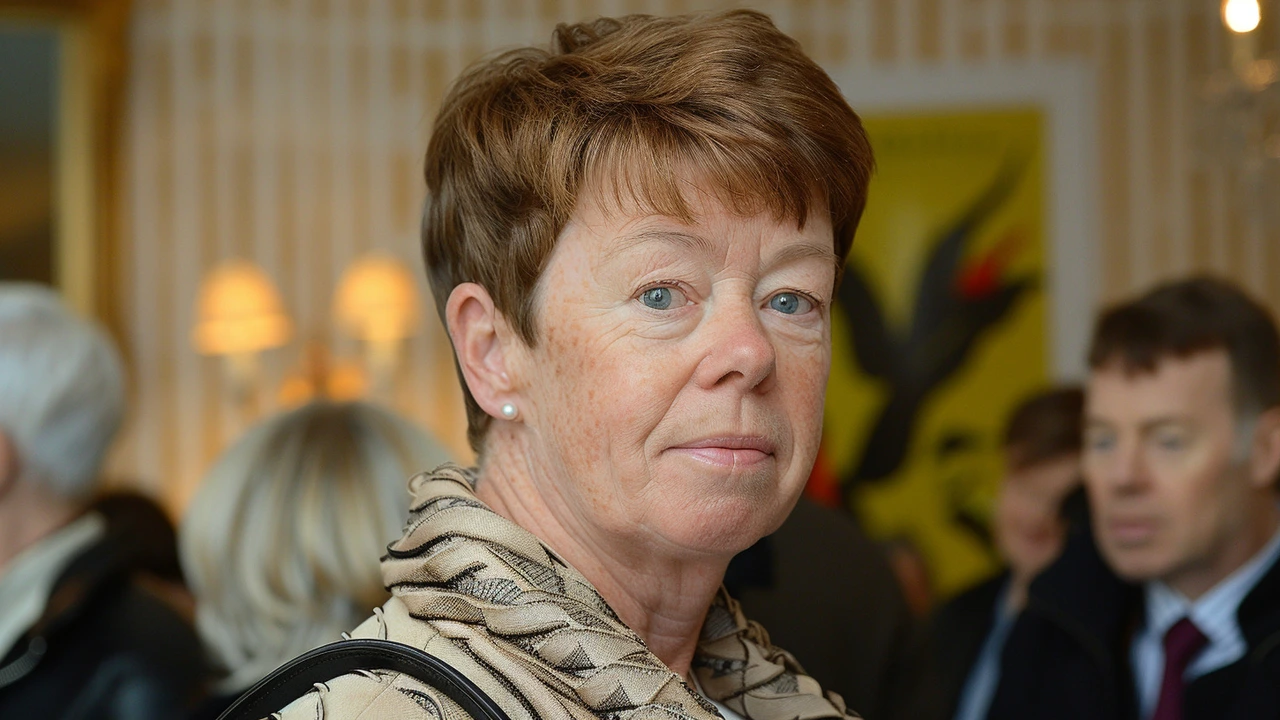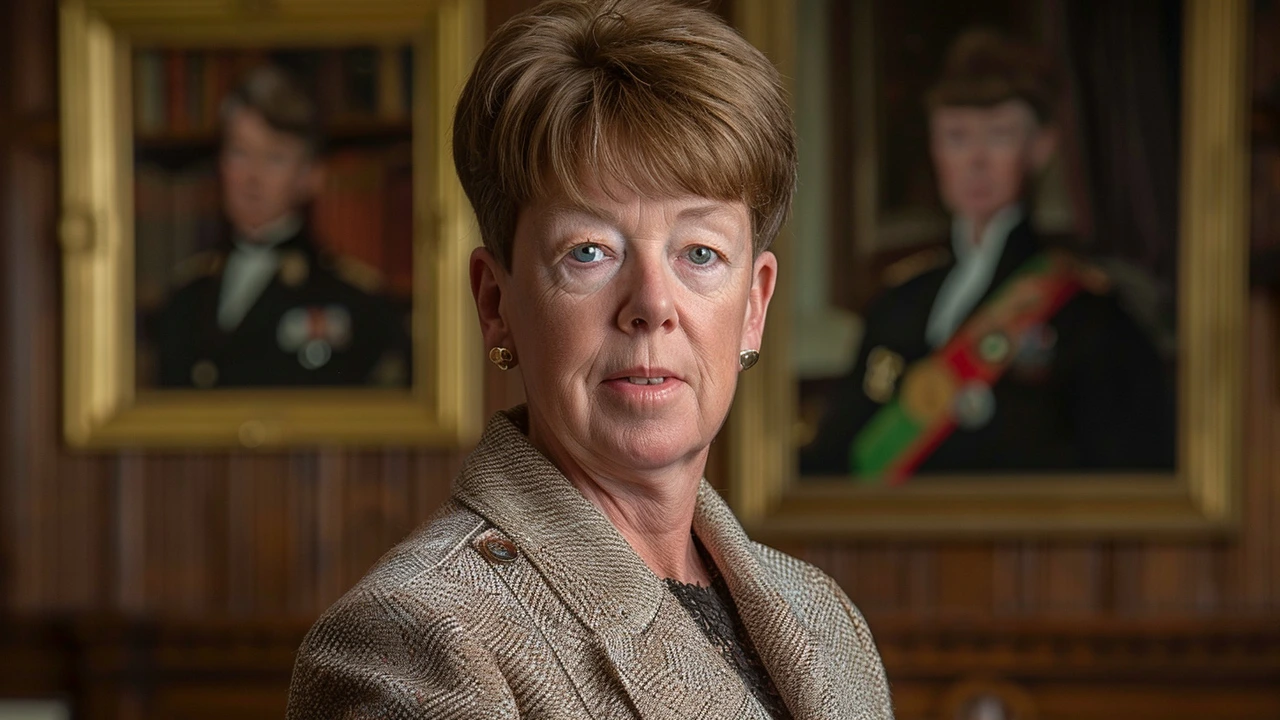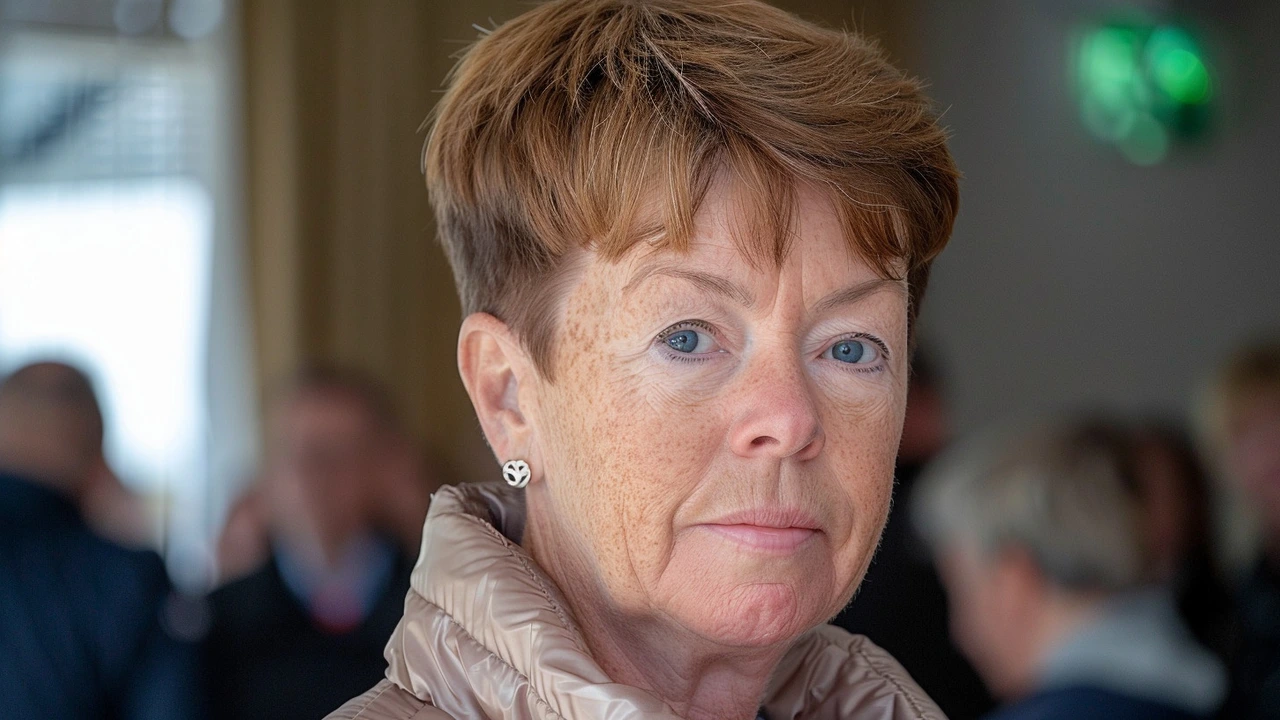Second Day of Testimony: Unveiling Deep-Rooted Issues
As the Post Office Horizon IT inquiry continues, former CEO Paula Vennells finds herself at the epicenter of a storm that has been brewing for over a decade. On her second day of testimony, Vennells navigates through a labyrinth of questions and accusations, attempting to clarify her role amidst the chaos caused by the Horizon IT system. This system, which was intended to streamline operations, instead became synonymous with one of the UK's most significant miscarriages of justice.
Her initial admission that she was unaware of the IT faults within the Horizon system raises eyebrows. Vennells attributes this lack of knowledge to the organizational structure and her implicit trust in her subordinates. However, her argument is met with skepticism, given the earnest need for transparency and due diligence expected from someone in her position.
A Complex Web of Trust and Misinformation
Vennells' claims that she had been misled by the Post Office's legal team add another layer of complexity to the saga. The revelation brings into focus a series of questions regarding the internal communication and accountability mechanisms during her tenure. It paints a picture of an organization where vital information could be easily concealed or misrepresented, leading to disastrous consequences.
The emotional intensity of the inquiry is palpable, with Vennells reportedly tearing up during her testimony. Her display of emotion, however, does little to pacify those seeking justice, like Alan Bates. Bates has been a relentless campaigner, fighting for the workers who suffered due to the erroneous IT system. To him, the tears and apologies do little to absolve Vennells of her perceived complicity in the ordeal.

Allegations and Accusations: The Role of Dame Moya Greene
The controversy takes a sharper turn with the involvement of Dame Moya Greene, former CEO of Royal Mail. Greene's accusations of a cover-up not only escalate the tension but also suggest a deeper, systemic issue within the Post Office management. Greene's dissatisfaction and dismay over the scandal's revelations hint at a long-standing culture of opacity and mismanagement.
An audit by Ernst and Young in 2011 highlighted significant risks due to Fujitsu's remote access to the Horizon IT system. Despite this, the Post Office consistently denied any issues, even during high court proceedings. Vennells' insistence on her ignorance of these facts until 2012 clashes starkly with documentary evidence. This evidence implicates her presence at a 2008 meeting where the training of Post Office investigators was discussed, further casting doubt on her claims.

The Search for Accountability
The chair of the inquiry, Wyn Williams, faces the daunting task of sifting through a decade's worth of allegations, denials, and partial truths. His objective is clear: to establish accountability and ensure that such a colossal failure of justice does not recur. Vennells' testimony, therefore, is not just an exercise in personal defense but a crucial piece in the puzzle of systemic failure.
As the inquiry proceeds, it is evident that the ramifications of the Horizon IT debacle extend far beyond the affected staff. It challenges the very core of corporate governance and ethical leadership. Vennells' role, while significant, is part of a broader context that includes multiple layers of decision-making and operational oversight.
An Emotional Apology and Its Reception
Vennells' emotional state during her testimony is noteworthy. It underscores the personal toll that the controversy has taken. Her apologies, delivered amidst visible distress, reflect a recognition of the suffering endured by many. Yet, for campaigners like Bates, these apologies are seen through the lens of years of struggle and injustice. They demand not just contrition but concrete steps towards rectification and compensation.
The presence of a live video feed for the inquiry allows the public to witness the proceedings in real-time. This transparency is crucial in rebuilding trust and ensuring that the public remains informed. It also serves as a reminder of the far-reaching impact of the Horizon IT scandal, affecting not just the individuals directly involved but the public's perception of institutional integrity.

Looking Ahead: The Implications of the Inquiry
As the inquiry unfolds, its outcomes will likely set precedents for how similar cases are handled in the future. For Vennells, this is a moment of reckoning. For the affected staff and their advocates, it is a chance for validation and, potentially, vindication.
The Horizon IT inquiry is a pivotal moment in the history of the Post Office and corporate governance in the UK. It underscores the importance of transparency, accountability, and the need for robust internal communication frameworks. As Vennells continues to testify, the hope is that the inquiry will not only uncover the truth but also pave the way for meaningful reforms.

Pauline Herrin
May 23, 2024 AT 20:15While the inquiry rightly seeks to illuminate systemic failure, it is incumbent upon former leadership to accept full responsibility. Paula Vennells’ claim of ignorance strains credulity given documented briefings she attended. The post‑office hierarchy cannot be invoked as a shield against personal accountability. Transparency demands that executives own the consequences of decisions made under their watch. An apology, however sincere, must be accompanied by concrete remediation for the aggrieved staff. The public deserves a clear delineation of culpability beyond vague denials.
pradeep kumar
May 23, 2024 AT 21:20Vennells’ tearful testimony feels more theatrical than genuine. The data trail shows she was briefed on Horizon glitches as early as 2008. Ignorance is not a defensible excuse for the harm caused.
love monster
May 23, 2024 AT 22:26From a risk‑management perspective, the failure to propagate known system anomalies reflects a breakdown in governance protocols. Stakeholders were denied critical alerts, compromising operational integrity. It is essential that future frameworks incorporate real‑time error monitoring and clear escalation channels. By embedding these controls, organizations can mitigate the likelihood of similar catastrophes. The inquiry’s findings should therefore translate into actionable, industry‑standard safeguards.
Christian Barthelt
May 23, 2024 AT 23:33The testimony presented thus far underscores a recurring pattern of institutional denial that is antithetical to the principles of corporate stewardship. First, the assertion that Horizon’s deficiencies were undisclosed ignores the exhaustive audit conducted by Ernst & Young in 2011, which explicitly highlighted remote‑access vulnerabilities. Second, internal memoranda from 2008 demonstrate that senior management, including Ms. Vennells, were apprised of training deficiencies for investigators, thereby negating claims of complete unawareness. Third, the legal counsel’s purported “misdirection” cannot be exonerated by the absence of a written directive; verbal briefings constitute sufficient communicative duty in a hierarchically structured entity. Fourth, the post‑office’s repeated public denials, even in the face of burgeoning court evidence, reveal a conscious strategy to preserve reputation at the expense of truth. Fifth, the human cost-over 700 wrongful convictions-exceeds any plausible margin of error attributable to software glitches alone. Sixth, the systemic culture of opacity, as evidenced by the reluctance to share audit findings with affected sub‑branches, amplifies the moral culpability of leadership. Seventh, accountability mechanisms were either absent or purposefully circumvented, suggesting deliberate governance failure. Eighth, the emotional displays during testimony, while perhaps sincere, do not absolve the organization of its fiduciary duty to its employees. Ninth, corrective measures must extend beyond apologies, encompassing statutory compensation and comprehensive policy overhaul. Tenth, the inquiry’s mandate to establish precedent is commendable, but it must be accompanied by enforceable regulatory reforms. Eleventh, future oversight bodies should be vested with statutory powers to audit IT systems proactively. Twelfth, cross‑agency collaboration with cybersecurity experts should become a statutory requirement. Thirteenth, transparency with the public must be codified to prevent recurrence. Fourteenth, the board’s composition should reflect independent expertise to challenge internal complacency. Fifteenth, whistleblower protections must be robust enough to encourage early reporting of systemic flaws. In sum, the evidence compels a decisive, multifaceted response that transcends perfunctory apology.
Ify Okocha
May 24, 2024 AT 00:40The narrative that senior officials were merely “misled” betrays a shallow understanding of organizational accountability. When top‑level executives ignore or dismiss audit warnings, the fault lies squarely with those leaders, not the downstream staff forced to shoulder the consequences. The pattern of defensive posturing observed throughout the inquiry is a textbook case of institutional self‑preservation at the expense of justice. The victims deserve more than rhetorical sympathy; they require material restitution and a transparent record of where the decision‑making process collapsed. Any attempt to minimize this scandal under the guise of “complexity” is a disservice to the truth.
William Anderson
May 24, 2024 AT 01:46The whole affair reads like a tragic opera of denial.
Sherri Gassaway
May 24, 2024 AT 02:53In contemplating the Horizon debacle one is reminded that technology, like any tool, reflects the intentions of its wielders; when wielded without humility it becomes an instrument of oppression. The silence of those at the helm speaks louder than any ledger, echoing a moral vacuum that profit alone cannot fill. Our collective responsibility, therefore, is not merely to rectify past wrongs but to cultivate an ethic where transparency precedes execution. Only then can we hope to transform systemic failure into a catalyst for philosophical growth within corporate culture.
Milo Cado
May 24, 2024 AT 04:00It is encouraging to see the inquiry pushing for concrete reforms that will safeguard future users of critical IT systems. By institutionalizing rigorous audit trails and empowering independent oversight, the Post Office can begin to rebuild trust with both employees and the public. This proactive stance, coupled with a commitment to fair compensation for those wronged, sets a hopeful precedent for corporate accountability. Let us remain supportive of these efforts and celebrate each step toward a more transparent future 😊.